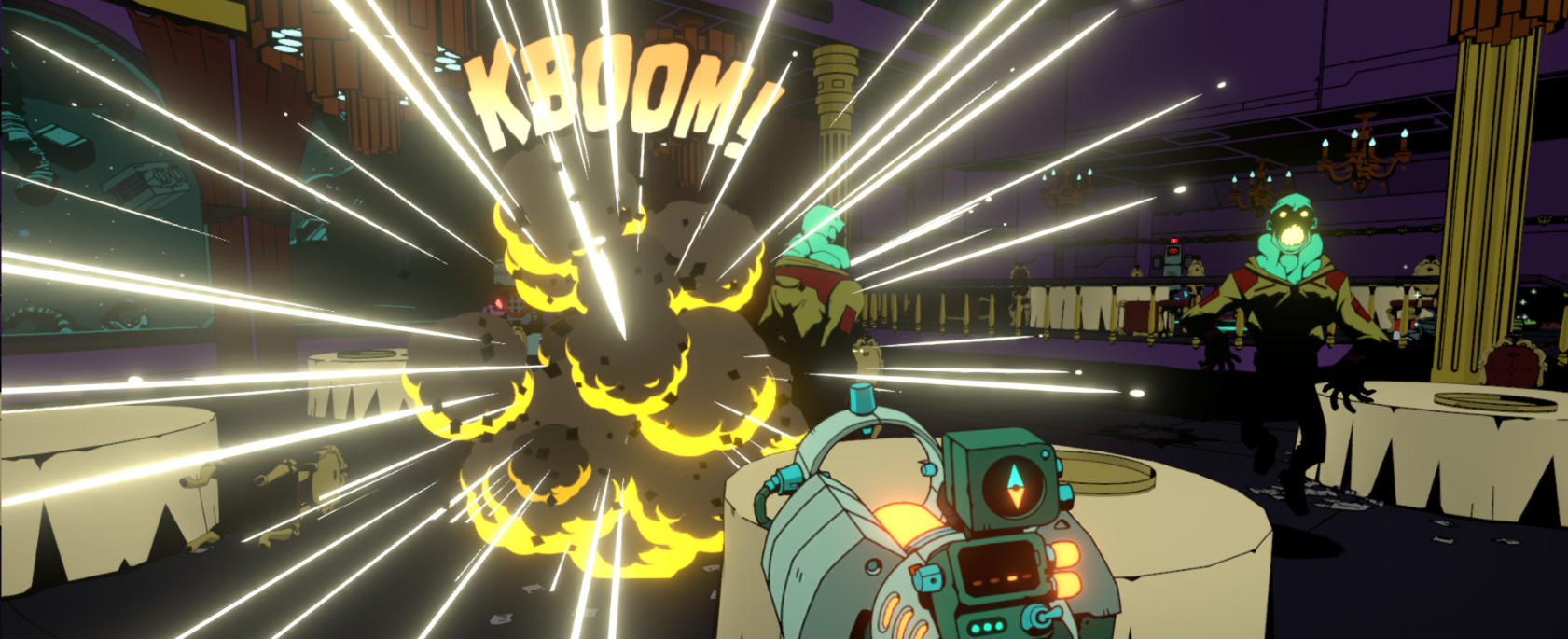TOM FRANCIS
REGRETS THIS ALREADY
Hello! I'm Tom. I'm a game designer, writer, and programmer on Gunpoint, Heat Signature, and Tactical Breach Wizards. Here's some more info on all the games I've worked on, here are the videos I make on YouTube, and here are two short stories I wrote for the Machine of Death collections.
Theme
By me. Uses Adaptive Images by Matt Wilcox.
Search
A Snowy Ramble On What Makes Games ‘Different Every Time’
It’s snowing, and I have a mic that make me audible outdoors!
So I got mildly snowed on while I rambled about board games as roguelikes, what matters when making games ‘different every time’, and how Dune Imperium pulls it off so well.
Blundering Into Dead King’s Bluff
Blundered into a board game design lately, and it’s coming together. Here I am talking about it on a cold, sunny, noisy (sorry) day! Will show it in action once some little rules things solidify.

The Bone Queen And The Frost Bishop: Playtesting Scavenger Chess In Plasticine
My chess variant stalled a while, cos I rarely felt like coding when my work day was done. So I bought a chess set and some plasticine to try some ideas lo-fi style. What follows is how my first game of this iteration of Scavenger Chess played out.
Five Problems With Chess
Firstly, of course: many folks I like and respect love chess, and I’m happy for them and have no interest in persuading chess fans to like it less or want something different. But it’s not for everyone, and I’m one of the people for whom it’s not. So what I’m interested in is: what needs fixing to make it a game I enjoy? And if you did that, who else might enjoy it?
I am gonna call these problems problems, though, because it gets exhausting to say “possible areas where there’s scope to broaden or mutate its appeal to a different set of people, without wishing to detract from or disparage the great enjoyment many already draw from the game as it stands.” And because some of them, from my perspective, for players like me, with all the caveats above, seem incredibly fucking stupid. Continued
We’re Looking For Someone To Make A Tactical Breach Wizards Trailer
Update: the position’s been filled, thanks everyone!
We’re looking for someone to make a roughly 2 minute trailer of Tactical Breach Wizards, preferably by the 9th of May.
We have a new chapter of the game to show off, but we don’t want to do our usual in-depth talkthroughs because it would start to get spoilery.
The game has pause, slowmo, level select and camera controls built in, and we’ll also provide you with the Unity project if you’re able to make use of that.
We have a composer and some tracks already in, you’d work with them directly to figure out the music needs.
Our game is a fairly straight-faced parody of a modern military action thriller, borrowing superficial tropes and critiquing or inverting some of the deeper ones. You can get a sense of it from our last talkthrough vid:
And you can get a sense of our sense of humour from the Gunpoint and Heat Signature trailers:

Void Bastards Vs Heat Signature: A Completely Objective Analysis
Note: this was written around the time Void Bastards was released, but languished in my Drafts for years because I’d planned to make it longer. What’s there all still makes sense to me though, so I’m just gonna make it about the 3 things I did cover and throw it out there:
Void Bastards is a roguelike first-person shooter about boarding randomly generated spaceships. I designed a top-down roguelike about boarding randomly generated spaceships, so it’s interesting to see how the two games tackled the same issues differently, and how well their solutions worked out! I picked three: Continued
Gridcannon: A Single Player Game With Regular Playing Cards
I thought it would be an interesting game design challenge to come up with a single player game you can play with a regular deck of playing cards. My first try, about a month ago, didn’t work. But on Sunday I had a new idea, and with one tweak from me and another from my friend Chris Thursten, it’s playing pretty well now! In the video I both explain it and play a full game. I’ll write the rules here, but they’ll make more sense when you see it played: Continued

Making A Better Card Feel Worse With UX
Nowhere Prophet has a power where each turn you can choose 1 card from your hand to discard, and draw another to replace it.
Slay the Spire has a power where you draw 1 extra card per turn, then must discard 1 of your choice right after.
Slay’s power is straight up better: you get to see what the new card is before deciding what to discard, which both lets you factor it into synergy considerations, and allows you to discard the new card itself, if it’s worse than what you have.
But experientially, Nowhere Prophet’s feels more positive. You’re presented with a hand you can keep, or if you like you can get a do-over on the card you like least. Doing nothing is fine, but if you see a bad card you can chuck it for good odds of a better one. Yay! Continued

Steam Quirks For Developers
Talking to people at GDC and Rezzed, especially people just starting in game dev, made me realise I’ve accumulated a load of non-obvious knowledge about how Steam works and how best to use it. Info like this tends to get passed around between established devs, at events and in closed circles, but newer devs and those excluded from these groups don’t get access to it.
Everything marked ‘info’ was either learned by me first hand, or told to me by Valve at events with the express purpose of getting this kind of info out to developers, without request of confidentiality. I say this because I do also get told things confidentially – none of that is in here. Continued
Charity
When Gunpoint did well, in 2013, I thought: “I should give some money to charity. But this might have to last me the rest of my life. So I should wait til I have a second game out, and see how that does.”
When Heat Signature did well in, 2017, I thought: “It’s doing great so far! But how fast will it trail off? This has to cover the budget of the next game. What if Steam’s algorithm changes and all our revenue stops? Maybe after the third game I’ll know more about-”
I see what my brain is doing. There’ll always be enough uncertainty in my life that I can delay a donation in the name of caution. But I don’t think that loop ends on iteration 3 or 4, so I’m cutting it short now. I’m giving $25,000 to the Against Malaria Foundation and another $25,000 to GiveDirectly. Continued

My Week
This year I’ve started tracking the hours I spend programming, because generally once I start tracking something I naturally start to optimise it. I’m not a workaholic – I’m at greater risk of not putting in the hours than of putting in too many, and I’d like to make sure I’m putting in enough.
Programming is about 40% of my job. Another 40% is design, and the other 20% is every other job on a game that isn’t art or music. The design part is hard to track though: I find most productive design thinking comes from a big engine in the back while you’re doing other things, as it randomly matches disparate ideas and sprinkles them with what you’re currently experiencing and asks: “Is that anything?”
Programming, though, I can measure: I start a timer and then focus on work for anywhere from 8 minutes to 80. If I get the urge to check Twitter, I can but I have to stop the timer to do it, and only log the work time. I only get to log the time if it really was focused work – all breaks and interruptions and meals and everything else is excluded. Back when I notionally worked an 8 hour-a-day job, I had an hour for lunch, lots of Twitter breaks and interruptions. I’d be surprised if I averaged as many as 6 productive hours a day.
Anyway, here’s my first full week’s programming time tracked: Continued
Heat Signature’s Space Birthday Update Is Live!
Heat Signature is one Space Year old today! To celebrate, we’ve released a big free update we’ve been working on for five months, with over 20 features – including our own twist on a Daily Challenge.
Click through for details on each:
What Works And Why: Emergence
I love Deus Ex, System Shock 2, and Dishonored 2, and the name for these games is dumb: they’re ‘immersive sims’. If you asked me what I liked about them, my answer would be a phrase almost as dumb: ’emergent gameplay!’ Continued
Pitch: Tactical Breach Wizards
I’ve been tweeting GIFs of a game I’m prototyping in Unity for a while now, codenamed Tiny Ex-Cons, and recently did a video blog about the core elements I’m hoping to combine if I go ahead with it.
It’s too early to know if this is my next big project or not – my prototype doesn’t have enough to prove the concept yet – but I do want to start showing more of it. And I’ve been holding back part of the concept, and indeed the name. It’s not hard to describe, but it’ll only really work with the right art, so I didn’t want to talk about it until I was sure that side of things would work.
And hey, you know who’s good at art? Gunpoint and Heat Signature artist John Roberts! So he’s joined me again and sketched out some ideas for this new concept. Which is… Continued
Heat Signature’s Fair Points Update: Reacting To Good Reviews
I was too nervous to read Heat Signature reviews for two weeks after launch. I was relieved to see the scores were great, and after 3.5 years of work, that was all I wanted to hear: I didn’t want to know what their caveats were.
Once I calmed down and read them, though, I was delighted: they were not only very positive, but they told entertaining stories and made intelligent points. And almost every critique I read I thought was a fair point. Hence this: Continued
